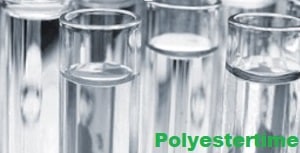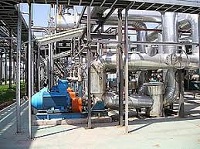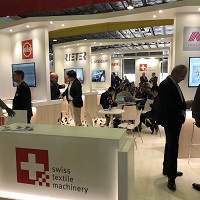Petrochemicals Bioeconomy Coronavirus 19-03-2020 - Arhive
Petrochemicals Bioeconomy Coronavirus
Crude Oil Prices Trend

-MEGlobal lowers April MEG contract price in Asia by USD40 per ton
MEGlobal, the world leader in the production of monoethylene glycol (MEG) and diethylene glycol (DG), nominated the April MEG contract price for Asia at USD640 per tonne, which is USD40 per tonne lower than March, the press said. company service.
The price was announced on terms of delivery CFR Asia.
Weekly MEG quotes in Asia last week fell 8.14% to the range of USD468-480 per tonne, CFR CMP (main ports of China) after falling crude oil quotes and exacerbating concerns about the slowdown in global demand caused by the outbreak of coronavirus.

-Coronavirus kills Brexit negotiations — for now
Britain insists the Brexit transition period will not be extended.
Britain and the EU finally gave up hope of holding formal Brexit negotiations amid the unfolding coronavirus crisis.
A U.K. government spokesperson said the two sides “will not formally be convening negotiating work strands tomorrow in the way we did in the previous round” in light of the latest guidance on the disease. Two government officials said there would not be negotiations this week, as previously planned.

-Future of Flexible Packaging According to Covestro
What do deliciously crunchy chips, crisp green salad and fresh roasted coffee beans have in common? Their bags and pouches belong to a quickly growing category known as flexible packaging – currently the most widely used form of packaging worldwide.
Flexible packaging is on the rise. In recent years it has surpassed all other packaging types including rigid plastics, metal, paper and glass.
And for good reason: flexible packaging offers efficient roll-to-roll processing and appealing designs. Its high functionality also extends the shelf life of food while minimizing material usage. Petrochemicals Bioeconomy Coronavirus

-Using fewer resources, saving water denim industry trends
The top three denim industry trends are to use fewer natural resources and apply closed-loop recycling systems to existing processes; to use water-saving techniques, either to create laser finishes or ecological washes, and dyes of natural origin; and craft textures with rustic air, aesthetics and resistance, but with refined fabrics, according to Tejidos Royo.
The company is capable of dyeing indigo without water, Jose Royo, sales director for emerging countries at the 116-year-old Spanish fabric manufacturer, told Fibre2Fashion in an interview. Petrochemicals Bioeconomy Coronavirus

-Biffa pledges £1.25 billion green economy investment
Waste management company Biffa has pledged to reduce its CO2 emissions by 50% by 2030 and “unlock” £1.25 billion of investment in UK green economy infrastructure.
The pledge was announced in its long-term sustainability strategy ‘Resourceful, Responsible’, published today (16 March).
The strategy focuses on three areas: building a circular economy, tackling climate change and caring for its employees. Petrochemicals Bioeconomy Coronavirus
Michael Topham, chief executive of Biffa plc, said: “’Resourceful, Responsible’ fully supports our strategic growth plans and long-term vision, defining the important role Biffa can play in delivering more sustainable solutions to help combat the UK’s waste challenge.

-Polyester polymerization rate climbs to 80% under intensive restart
Oil, stock and polyester market all witnessed sharp up-and-down rarely seen before at the beginning of 2020.
The polyester polymerization rate was once below 60% in mid-Feb and has gradually ascended to above 80% in early-Mar after more polyester companies resumed operation, which is not ruled out to rise to near 86% in end-Mar with more plants restarting production. Petrochemicals Bioeconomy Coronavirus

-Chemicals need to plan for collapse in demand, prolonged downturn – consultant
Chemicals executives must make business plans for a worse case scenario of collapsing demand and a prolonged economic downturn, according to an industry consultant.
Coronavirus has triggered a collapse of global markets at a time when asset values were vastly over-inflated by unprecedented levels of debt, said Paul Hodges, chairman of consultancy International eChem. Petrochemicals Bioeconomy Coronavirus
“The current stock market collapse is a sign that the central banks have lost control of the stock market, just as OPEC has lost control of oil markets,” he said.

-OAS and 2-DTech in graphene-plastic compound collaboration agreement
Oxford Advanced Surfaces (OAS), a pioneer and market leader in the surface treatment of polymeric, plastic and composite materials by the application of highly reactive carbene chemistry, has entered into a collaboration agreement with 2-DTech Limited, a subsidiary of Versarien plc.
Graphene molecular grid, graphene atomic structure concept, hexagonal geometric form, nanotechnology background 3d rendering Petrochemicals Bioeconomy Coronavirus
The aim is to develop a new range of products that incorporate nanomaterials, such as graphene, into OAS’ proprietary Onto chemistry platform to deliver enhanced mechanical performance and improved electrical and thermal conductivity.

-Swiss innovation meets African promise
Swiss textile machinery companies made a major impact at the inaugural ITME Africa trade show, with 12 member companies from Swissmem (the Swiss Textile Machinery Association) presenting their latest technologies.
The event, staged in the Ethiopian capital Addis Ababa from February 14 to 16, featured more than 170 exhibitors from 15 countries. It was organized by India ITME Society, as an extension of its existing trade shows in India.
Post-show reports from the Swissmem companies indicated a high level of satisfaction with the organization – and the positive impression made by the attractive design of the Swiss Pavilion. The business prospects were also said to be upbeat, with Ethiopia and neighbouring East African countries increasingly viewed as fertile ground for technological and commercial developments in textile production. The region is widely viewed as an emerging option for global apparel sourcing. Petrochemicals Bioeconomy Coronavirus

-China: Export rebate rates adjustment for some chemicals
China will increase export tax rebates on almost 1,500 products from March 20, the finance ministry said on Tuesday, as the government looks to ease the pressure on companies hit hard by the coronavirus outbreak. The Ministry of Finance said 1,084 products, would have the rebate raised to 13%, while another 380 products will see the rebate rise to 9%. It did not specify the previous rebate rates.
The adjustment won’t have direct impact on benzene. However, the adjustment on downstream derivatives may boost product exports, which is expected to support benzene demand. The rebate of styrene monomer and ethylbenzene would be raised from 10% to 13%. Petrochemicals Bioeconomy Coronavirus

Petrochemicals Bioeconomy Coronavirus
